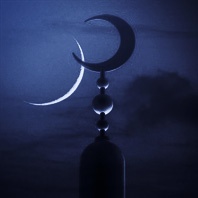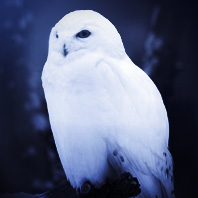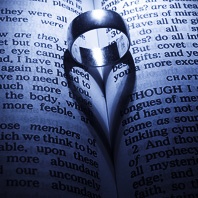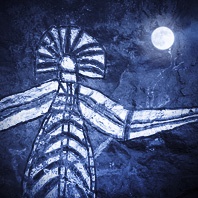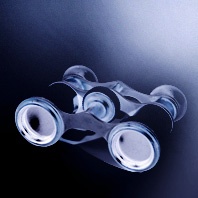Rubrik: Worth reading
This disk, made of bronze and gold, with an age of around 3,600 years, belongs to the oldest find representing astronomical phenomena and thereby depicting planets and stars in the sky. It is thus of great value, because it is evidenced that people of the Bronze Age (2200-800 BC) did not only possess manual skills to create such a refined metal disk, but above all, had the knowledge about astronomical processes. They observed the celestial events with the naked eye and portrayed this in an artistic form.
Read more
In China, the September full moon is a special day. It is the day of the Moon Festival or Mid-Autumn Festival. This festival is traditionally celebrated on the 15th day of the eighth month of the old Chinese calendar. Because the moon month averages 29.5 days in length, the 15th day is usually a full moon day, however, there are slight shifts in some years. The Moon Festival is one of the most important festivals in China, but is also held in Korea and Vietnam as well as in the respective districts in big cities around the globe.
Read more
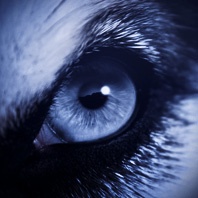 We are approaching a more sinister subject, the werewolf, a being that apparently changes from human into a wolf on the full moon. Everyone has heard about it or seen more or less plausible interpretations in movies. Where does this belief stem from? Why a wolf of all animals? And why in the full moon light?
We are approaching a more sinister subject, the werewolf, a being that apparently changes from human into a wolf on the full moon. Everyone has heard about it or seen more or less plausible interpretations in movies. Where does this belief stem from? Why a wolf of all animals? And why in the full moon light?
The word »werewolf« contains, without difficulty to recognise, the »wolf« and the word »were« that translates into »man, human« and can be found in many languages, et al. Old Enlish, Germanic, Old High German and more. So we are talking about a man wolf or a wolfman, someone who can or must take the shape of a wolf. This belief has been widespread in the old days and this had nothing to do with the cliché we are getting to see in horror movies today.
Read more
As a general rule, we live our secular life by a so-called solar calendar, the Gregorian calendar, which determines our calculation of time since the end of the 16th century. The biggest advantage of a solar calendar is its connection to the seasons: it is warm in summer, cold in winter, at least this is how it should be … at times however, as we all know, the weather goes crazy and sunshine is long-awaited in summer and snow stays away in winter. The seasons are connected to the (solar) calendar months.
Read more
Does it surprise anyone that the full moon plays a part in the Harry Potter novels, the most popular fantasy stories of these days. This appears to be quite natural midst all the magic. Are there differences between the individual volumes? What other connections are there with the full moon? And: Which of the performers may have possibly been born on the full moon? These questions occupied us and brought forward some astonishing details.
Initially, we searched through the texts of all seven Harry Potter books and counted how often the word »full moon« appeared. We found 13 places altogether.
Read more
In German we call the weeks after the wedding »Flitterwochen«, which has really no relevance to the moon. In many languages it is referred to as »honey moon«, which derives from »honey month« and therefore denotes a specific time with particular sweetness after the wedding. However, not always has the connection to the moon been interpreted positively, because one saw in the waning of the Moon the symbol of the decline of attraction that the happy couple would experience during the course of years after the wedding.
Read more
A lot is said about how full moon can or could influence the sleep of people. And like so often, opinions differ on this subject. Some are certain that they sleep poorly or have a restless sleep around the time of full moon and are not able to fall asleep for a long time. Others sleep like a log … in between there are many who are not aware of any of this and not able to determine by their sleep patterns whether it is full moon or not.
Read more
In Australia, the “southern land” (lat. terra australis), full moon has been shining for millennia for its natives, the Aboriginal and Torres Strait Islander people. According to estimates they inhabit this continent since more than 50,000 years, while Europeans only began to settle there 200 to 400 years ago. We would like to make a connection to the full moon, which is very much part of this fascinating culture, who, like many others, had to endure many wrongs during the course of more recent history.
Read more
Let us still stay with the music for a little while and let us bring our attention to a grand musical genre of theatre, the opera. We recently saw TOSCA (from Puccini) in Madrid and lo and behold! In the first act, we suddenly heard »luna piena«, which is Italian for full moon. A real highlight!
Then we had the idea to rummage through some libretti (opera lyrics) to find out if the full moon motif may also play a part in other operas. For this purpose, one can view the libretti online. We were interested in particular in the actual mentioning of it, as these were created by the composers themselves, whereas the appearance of the full moon on stage was usually the part of the stage designer.
Read more
Although, one could easily presume that full moon influences the reproduction of many creatures, this has really only been proven for some species. One assumes this is the case with wolves, specific insects or crabs and also many humans vow not being able to do anything other than to look for the closeness of the other (or the same) sex at full moon. But absolutely certain are scientist only about one animal species that may not even be considered an animal by many: the corals. Here it has been established that reproduction is dependent on water temperature and moon light.
Read more
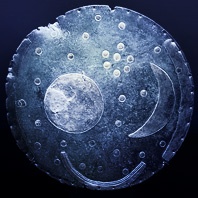

 We are approaching a more sinister subject, the werewolf, a being that apparently changes from human into a wolf on the full moon. Everyone has heard about it or seen more or less plausible interpretations in movies. Where does this belief stem from? Why a wolf of all animals? And why in the full moon light?
We are approaching a more sinister subject, the werewolf, a being that apparently changes from human into a wolf on the full moon. Everyone has heard about it or seen more or less plausible interpretations in movies. Where does this belief stem from? Why a wolf of all animals? And why in the full moon light?